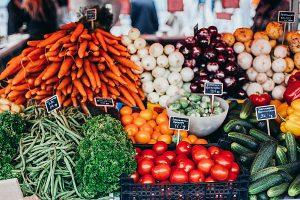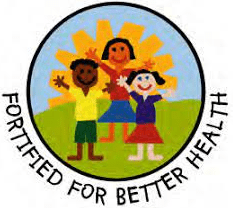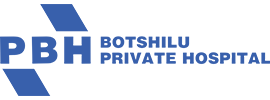Eating a well-balanced diet is one of the best choices you can take during pregnancy. Good
nutrition helps you handle the extra demands on your body as your pregnancy progresses.
The goal is to have a balance in getting macronutrients and micronutrients to support the
growth of your foetus and to maintain a healthy weight. Pregnancy and breastfeeding take
up much energy from the mother, so a mother should eat healthy to remain in good health
and have enough energy during pregnancy and breastfeeding.
“Healthy eating builds the mother’s energy and strength”.

Eating during pregnancy and breastfeeding
There is a popular saying that pregnant women “eat for two”, but now we know that this can
be inappropriate and could also pose a risk when you eat twice your usual amount of food
during pregnancy. Instead of “eating for two”, think of it as eating twice as healthy!
If you are pregnant with one baby, you need an extra 340 calories per day from the total
energy requirements, starting in the second trimester (and a bit more in the third trimester).
That is an estimation of a calorie count of a glass of skim milk and half a sandwich. Women
carrying twins should consume about 600 extra calories a day, and women carrying triplets
should take in 900 extra calories a day. (Ref: ACOG, 2021)
Eat breakfast, lunch, and supper every day, and include snacks in between meals. You must
also eat different kinds of foods during each meal.
Eat foods that include the following:

- Starchy foods like whole maize or fortified maize meal, potatoes, rice, fortified bread
and sweet potatoes. - Vegetables and fruit.
- Dry beans, peas, lentils, and soya foods can be eaten instead of meat.
- Fish, chicken, meat, milk or “amasi”, yoghurt, egg, mopani worms “masonja”.
- Drink a lot of clean water or other healthy fluids.
- Eat a snack, such as fruit, yoghurt, a glass of milk or “amasi” between meals.
- Avoid smoking, drinking alcohol, taking snuff, and using drugs, these can harm the health, growth, and development of your baby.
- Do light exercises like walking.
- Discuss weight gain, loss of weight, or not gaining weight with your Dietician.
* Adopted from the national maternal nutrition guidelines- Department of Health
Eat fortified foods, especially during pregnancy and breastfeeding
Fortified foods are foods which important vitamins and minerals that the body needs have
been added. The vitamins and minerals added to fortified foods include folic acid, iron, zinc,
and vitamin A. Fortified foods make the body healthier than foods of the same kind which are
not fortified. Fortified foods include maize meal, bread flour, and bread baked with fortified
flour. Eating fortified maize meal and bread is a good way to add vitamins and minerals to
the family diet. Below is the logo to look out for when selecting these foods.

The important vitamins and mineral supplementation during pregnancy:
In South Africa, the government clinics give iron, folic acid and calcium tablets to all mothers
during pregnancy. Some clinics give one tablet containing iron and folic acid, you can also
check this with your doctor. You can also receive more info during antenatal classes that are
hosted at Botshilu Private Hospital. To get an invitation to the antenatal and other
informative classes, register on the mother and baby programme, Botshilu Bambinos, on
www.botshilu.co.za/services/mother-and-baby. Registration is free and easy as A B C.
1. Folic acid
Eat foods rich in folic acid such as spinach, liver, dry beans, fortified maize meal and fortified
bread.
Benefits of folic acid:
• Protects the mother from common diseases.
• Helps the baby to develop well.
• Protects the baby from abnormalities.
• Helps the baby’s spinal cord to develop well.
2. Iron
Strengthens blood in the body and prevents anaemia. Signs that a pregnant woman has little
blood and needs iron include tiredness, weakness, weak breathing, dizziness, and a fast
heartbeat. Some women taking iron tablets may feel like vomiting (nausea) or have
constipation or diarrhoea, this is normal and harmless.
To reduce these problems:
- Take iron tablets with food to reduce nausea.
- Drink at least 2 litres of clean water and other fluids to prevent constipation.
- Eat plenty of fresh vegetables, fruit, and whole-wheat products to improve digestion.
- Vitamin C helps the body to take in and use iron.
It is important to note that when taking iron, some women pass dark faeces and dark urine.
This is normal and harmless. The colour of urine goes back to normal when the woman
stops taking iron tablets.
Iron food sources
Liver, kidney, spinach, red meat, dried beans, fortified maize meal and fortified bread.
3. Calcium
- Helps form and maintains healthy teeth and bones.
- Adequate intake of calcium can help prevent osteoporosis.
- Calcium plays a very important part in keeping heart muscles healthy.
- Calcium helps our nervous system function and assists with many other body
functions. - Eat and drink foods rich in calcium such as milk or “amasi”, cheese, yoghurt, sardines
and pilchards.
4. Vitamin C
- Vitamin C helps the body to take in and use iron. Food rich in Vitamin C includes
oranges, guavas, pineapples, mangoes, raw cabbage, and raw tomatoes.
5. Vitamin A
Eat food rich in Vitamin A every day as it helps with:
- Protects you from diseases and increases Vitamin A in your breast milk.
- Helps the baby to grow and develop well.
- Strengthens the baby’s body and makes it able to protect itself against diseases (strengthens the baby’s immune system).
- Improves the eyesight of your baby.
Vitamin A food sources
Dark green leafy vegetables like spinach or “morogo”. Chicken, ox liver, egg yolk, full cream
milk, fish, and offal. Dark, yellow- and orange-coloured fruits and vegetables like mangoes,
pawpaw, peaches, apricots, pumpkin, butternut, and carrots.
Conclusion
It is important to eat a healthy and well-balanced diet during pregnancy. This is good for you
and your baby, and it is very important to maintain a good weight during this process as it
can help prevent diseases during pregnancy like gestational diabetes, preeclampsia,
constipation, heartburn, and many other diseases that can arise.
For more information and a well-detailed balanced diet, menu, and diet counselling on other
diseases or pregnancy-related conditions and symptoms, please book a session with us.
Your nutrition at hand partners,
Vusi Sape and Katlego Medupe
T: (012) 798 7091
M: 081 279 8717 (Vusi) and 073 490 0757 (Katlego)
E: sapevusi7@gmail.com
Location: Botshilu Private Hospital |Suite No.:11 and BMR Family Health Clinics (Block DD,
Lebanon and Wonderpark Mall)
References:
• Directorate Nutrition National Department of Health
• American College of Obstetricians and Gynecologists (ACOG)
• WHO, UNICEF



